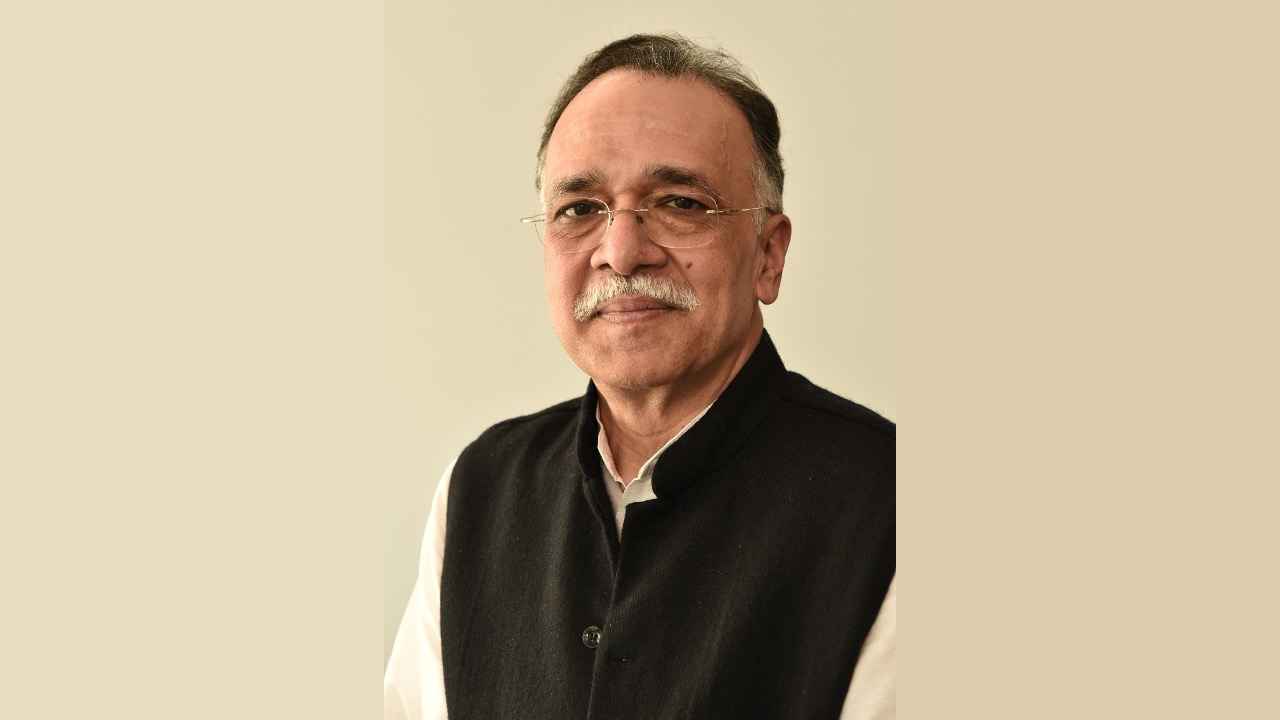Dr Pramath Raj Sinha of Harappa Education talks about how Edtech will power lifelong and universal learning

We're celebrating our 20th birthday this month, and we've invited industry experts, researchers and scientists to write in and paint a vision of the future, 20 years from now. Here's what Dr Pramath Raj Sinha, Founder and Chairman, Harappa Education had to share about his vision of the future.
 Survey
SurveyAbout 20 years ago, when my nephew wanted to study engineering, a family conference was conducted over scratchy international calls to discuss the options available to him.
Twenty years from now, you will simply go online and ask a digital academic counsellor what you should learn next. The guide will strike up a conversation with you like a real person — a wise mentor who already knows you quite well.
She knows you because she has access to your academic records, job profile and life goals and she will curate her queries based on this data. This artificial intelligence and machine learning-enabled counsellor will also have access to career paths and learning journeys of others with backgrounds and aspirations similar to yours, all of which she will analyze before coming up with customized solutions for you.
As you are answering her questions, she will dynamically update your profile, generating more questions in real-time to understand your needs and aspirations better. You may not know what you want till you have spoken to this career coach and now you will get clarity.
Next, she will recommend courses or learning modules. You can get access to anything from a two-hour masterclass to a degree program; you could be part of a one-on-one class with an expert or a series of masterclasses with multiple academics and practitioners; you get a certification from a reputable institution or a degree from a legacy university.
One thing is certain—you will learn from the best. You will not settle for poor quality and even the high-quality content will be affordable. You can learn on your own, when you want, where you want, in the mode you want to and at a pace that suits you. Your classroom will be virtual, but it will feel real, thanks to virtual reality technologies.
All this may seem a bit like sci-fi, but this is a reality that may not even take 20 years to reach!
Future-gazing into education throws up several exciting trends, all of them accelerated by technology.
The #1 trend is the need for lifelong learning. Because of the rapid pace of technological innovations, the world and the workplace are in constant flux. We are all going to live longer, and experts have already coined the idea of a 60-year curriculum. The idea that 12 years of school and 3-5 years of college is all the formal learning you will get — or need — is fast losing relevance. We will constantly need to unlearn and relearn, re-skill and upskill.
Second, with the advent of edtech (education + technology), it is already possible to learn in bite-size chunks, without being formally enrolled in any educational institution. You can learn any subject, by any faculty, from anywhere in the world. This is staggering. This kind of revolution has not been seen since the advent of the printed book, which allowed the idea of a school to take shape and grow all over the world. For GenZ, learning online is as much a habit as reading a book was for my generation.
This democratization of education is already happening, through platforms like Coursera and players like Harappa, which I have had the privilege to found. What is distinctive about Harappa is that we can offer courses at scale in areas that no one else has been able to. For an educator as well, there is tremendous liberation in being able to impart knowledge without even becoming part of a formal educational institution.
These tech-enabled shifts are even more exciting for us in India on two counts. First, we have so many, many young Indians to educate in such a short period of time that using digital learning is the only way to reach high-quality education to all of them, in all corners of the country. Yes, there is a digital divide to contend with and many believe that online learning will never match in-person classes, but we don’t have a choice. The fact that Indians form the second-largest cohort of learners on platforms like Coursera, edX, Udemy and Udacity shows that Indians are hungry to learn.
Finally, necessity is the mother of innovation. And because of this necessity, India, I believe, could emerge as a real sandbox for innovation in edtech. Look at how some of the edtech startups in our country are valued. Byju’s, Unacademy and Vedantu have revolutionized K-12 education and are now entering higher education and test prep. They are valued at thousands of crores of rupees and billions of dollars have been invested in them. Plus, they are going global, as are other Indian players like upGrad, Eruditus, Great Learning and Simplilearn. India can and must lead from the front in educational innovation because for us edtech is not a choice but the only option.
By- Dr Pramath Raj Sinha, Founder and Chairman, Harappa Education
To read what other industry leaders and experts have to say about the future in their respective fields, visit our 20th Anniversary Microsite.
Industry leader
Contributions from industry leaders and visionaries on trends, disruptions and advancements that they predict for the future View Full Profile